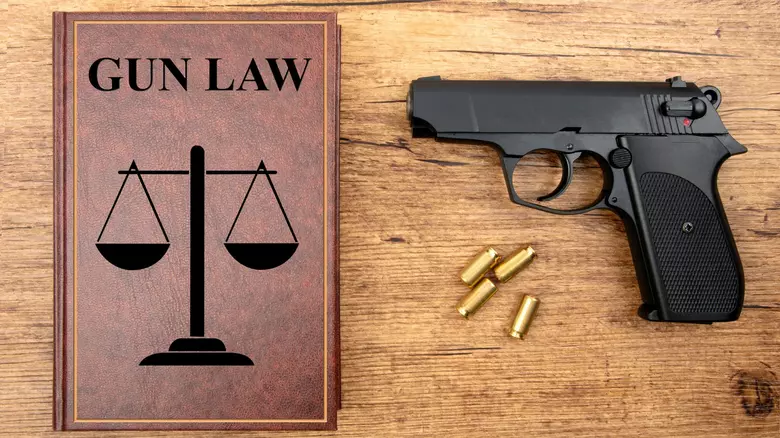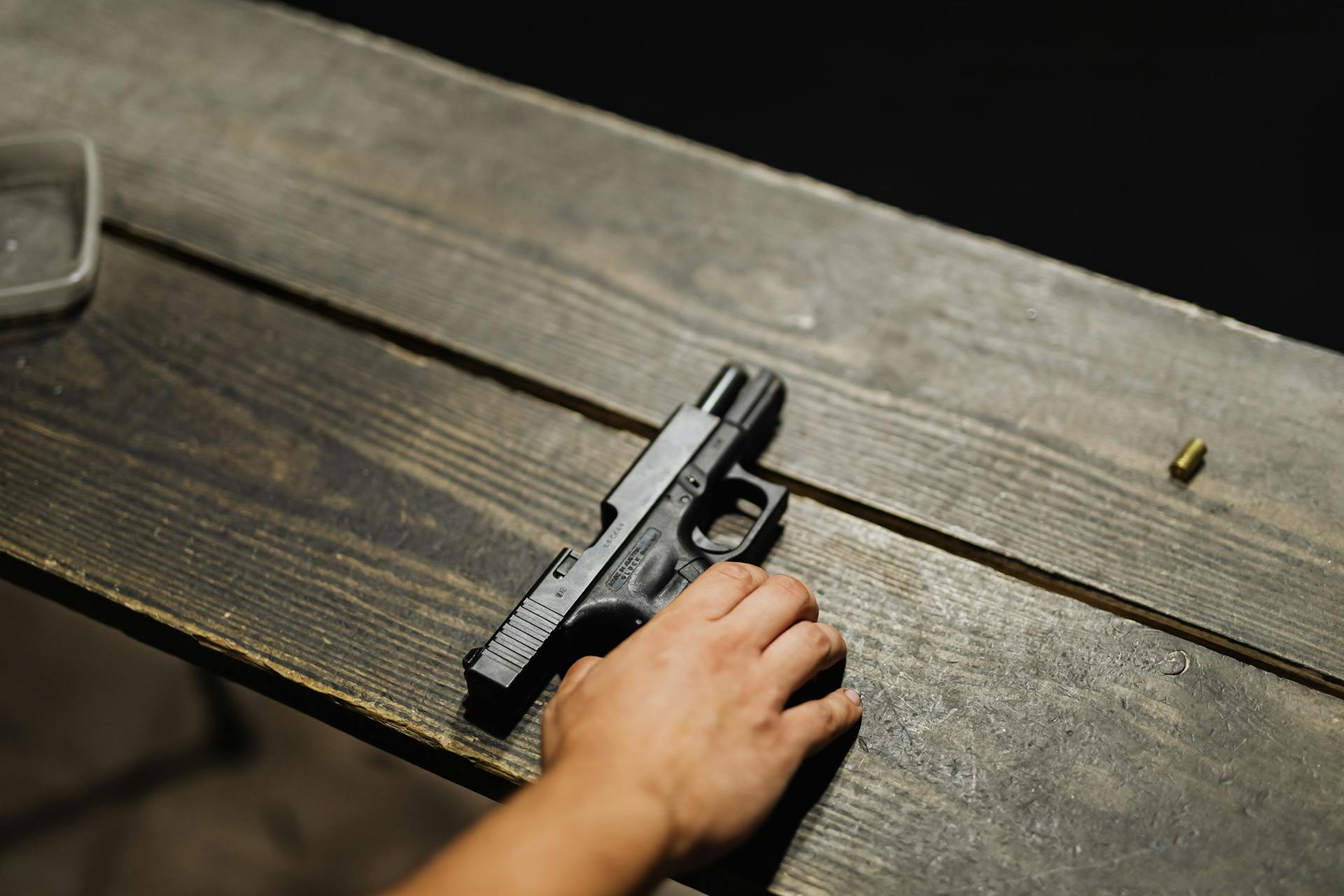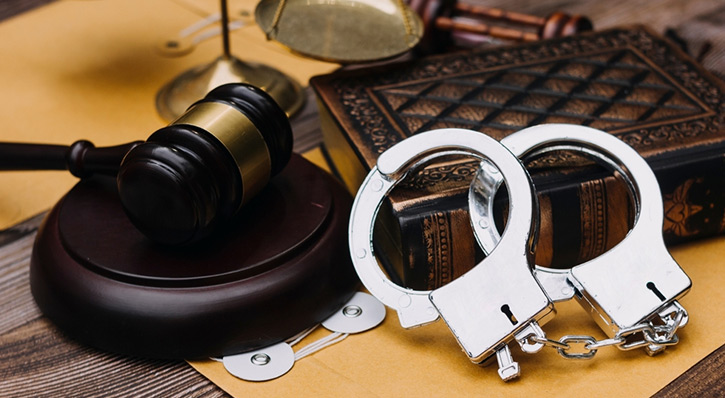UNDERSTANDING MICHIGAN’S NEW GUN LAWS (2024)
In Michigan, as in all states across the country, owning and carrying firearms is governed by a complex set of laws designed to balance the rights of individuals with the need to maintain public safety. Whether you’re a seasoned gun owner or considering purchasing your first firearm, staying informed about these laws is crucial. At B. Kizy Law, we are dedicated to providing you with the most current and comprehensive guidance to ensure that your rights are protected while complying with state regulations.
Michigan maintains specific legal frameworks to regulate the ownership, purchase, and transportation of firearms, ensuring safety while respecting the rights of responsible gun owners. Here’s a concise guide to understanding key aspects of these regulations. MCL § 28.422.
| Category | Details |
| Licenses
Required |
● Required for purchasing, carrying, possessing, or transporting a pistol.
● Also required for purchasing firearms that are not pistols, with some exceptions for transactions made before the law’s amendment. |
| Military
Personnel |
● Newly arrived or discharged military personnel must secure a firearm license within 30 days of entering Michigan. |
| Qualifications for License | ● Applicants must not be under certain legal disabilities, such as being subject to orders related to mental health or protective orders.
● Age: Must be at least 18 years old for rifles and shotguns, and 21 for pistols if buying from a licensed dealer. ● Citizenship: Must be a U.S. citizen or a lawfully admitted alien. ● Residency: Must be a legal resident of Michigan. This includes possessing a Michigan driver’s license or state ID, being registered to vote in Michigan, or being stationed in Michigan on active military duty with a home record in another state. ● Licensing authority issues licenses unless there’s probable cause to believe the applicant poses a threat or could violate firearm laws. |
| Minors | ● Individuals under 18 may not possess a firearm in public without direct adult supervision, except for hunting and certain sports shooting activities, provided the firearm is securely transported. |
| Non-residents | ● Non-residents can carry, possess, or transport a firearm within the state under specific conditions, such as possessing a similar license from their state of residence and carrying the firearm for a lawful purpose. |
| Conveyance | ● The law outlines procedures for the legal transfer of firearms upon the owner’s death to heirs or devisees, emphasizing lawful ownership transfer without the necessity for a license in such circumstances. |
| Penalties | ● Violations of the statute, such as providing false information on an application or failing to secure the necessary licenses, carry penalties, including fines and potential imprisonment. |
Concealed Carry Overview:
Concealed carry is legal but regulated. Applicants must navigate a process that includes fingerprinting, a background check, and an application fee to receive a concealed pistol license (CPL). The state operates on a “shall issue” basis, meaning the license must be granted if the applicant meets all legal conditions. MCL 28.425(b).
Concealed Carry Exceptions:
Certain locations remain off-limits for concealed carry, regardless of permit status. These areas include schools, places of worship, and establishments where alcohol is served. Transporting firearms also comes with stipulations: rifles and shotguns must be unloaded and secured in a vehicle in a manner that aligns with state guidelines. MCL 750.227(d).
Preemption Principle
Michigan law reinforces a comprehensive approach by reserving firearm and ammunition regulation exclusively to the state legislature, eliminating the patchwork of local ordinances and ensuring statewide uniformity. MCL 123.1102.
Firearm Use:
The law outlines lawful purposes for firearm possession outside one’s property, including activities like traveling to hunting grounds, target shooting areas, gun shows, and shooting facilities. This clarity supports lawful gun use while enforcing boundaries to ensure public safety.
Range Protection
Michigan acknowledges the importance of sport shooting ranges and protects them against municipal noise control ordinances, allowing regular shooting activities to proceed without undue restriction.
Understanding Firearm Possession Laws for Young Individuals in Michigan
In Michigan, the law places specific restrictions on firearm possession by individuals under the age of 18 to ensure safety and responsible use. MCL. § 750.234(f). Here’s what young gun owners and their guardians need to know:
- Individuals younger than 18 years cannot carry or possess a firearm in public spaces unless they are directly supervised by someone who is at least 18 years old. This rule is designed to ensure that young individuals learn to handle firearms responsibly under the guidance of adults.
- Violating these regulations is considered a misdemeanor. If a minor is found in violation of the firearm possession laws, they could face penalties, including up to 90 days in jail, a fine of up to $100, or both.
- Exceptions:
○ Hunting and Wildlife Conservation: If the minor is engaging in activities related to wildlife conservation under Michigan’s natural resources and environmental protection act, they may possess a firearm. This typically involves situations where the minor has a valid hunting license and is participating in legal hunting activities.
○ Target Practice and Sporting: Minors are also allowed to possess firearms for the purpose of going to or from recognized target ranges, trap shooting, or skeet shooting grounds without a hunting license. However, during transport, the firearm must be securely enclosed in a case or locked in the vehicle’s trunk.
New Safe Firearm Storage Legislation in Michigan
Michigan has taken a definitive stance on firearm safety with the enactment of a law aimed at protecting families, especially minors, from gun-related incidents. The legislation, which took effect on February 13, 2024, mandates secure storage methods for firearms to prevent access by minors and mentions specific penalties for failure to comply.
In Michigan, firearm owners are tasked with the responsible storage of their weapons, especially when minors could have access. The state’s regulations demand that firearms be stored in a manner that restricts unauthorized access, with particular emphasis on keeping them away from individuals under 18 years of age unless supervised.
Secure Storage Defined:
Safeguarding firearms involves storing them in locked boxes or containers and employing locking devices that prevent discharge. Such precautions are crucial to prevent accidental shootings and other firearm-related injuries among children. MCL 28.435.
Exemptions to Storage Laws:
Michigan law recognizes certain scenarios where minors may handle firearms. This includes situations like hunting with proper licensure, shooting at recognized ranges under supervision, or cases involving self-defense.
Penalties for Non-Compliance:
Should a minor gain access to a firearm due to an adult’s failure to securely store it, the adult may face:
- A misdemeanor charge for minors displaying or possessing the firearm carelessly or recklessly.
- Felony charges if the minor injures themselves or others, with the gravity of charges increasing if serious bodily harm or death occurs.
- Penalties range from fines and potential imprisonment for up to 93 days, to more severe consequences such as imprisonment for up to 15 years or fines of up to $10,000 if a minor discharges the firearm resulting in serious injury or death.
○ Exceptions: Minors using firearms with parental permission, during legal employment, or for lawful self-defense.
Safety Measures for Firearm Owners:
The state advocates for a series of safety protocols for firearm owners, including regular checks to ensure firearms are unloaded, secured, and separated from ammunition, particularly when there are minors in the vicinity.
Firearm Facts for Awareness:
Statistics show the risks associated with firearms, particularly in domestic environments. Educating the public on these risks and promoting responsible ownership is a continuous effort by Michigan’s health and safety agencies.
Tax Exemptions and Safety Kits:
To assist with compliance, safety devices for firearms are tax-exempt until December 24, 2024. Furthermore, free gun safety kits are available through Project ChildSafe and local law enforcement partnerships to encourage secure firearm storage practices.
Expanded Safety Measures:
Additional legislation, which took effect on February 13, 2024, will expand universal background checks to all firearm transactions and provide mechanisms for temporary
firearm confiscation by law enforcement when individuals are deemed a risk. Public Act 17 of 2023.
Resources for Firearm Safety and Education:
Michigan offers a variety of resources to aid residents in understanding and complying with firearm laws. This includes access to safety education, harm prevention programs, and guidelines for legally obtaining and transporting firearms. Below are resources provided by the state of Michigan:
- Project ChildSafe: https://projectchildsafe.org/
- GunSafetyAndChildren: https://www.mottchildren.org/posts/your-child/gun-safety-and-children
- Firearm Injury Prevention: https://firearminjury.umich.edu/resources-communities/trainingvideos/
Navigating Gun Laws with B. Kizy Law
In summary, B. Kizy Law reiterates the importance of understanding Michigan’s gun laws for the safety and security of our communities. Adhering to the statutes is not only a legal mandate, but also a moral one, as it demonstrates our collective commitment to responsible gun ownership.
At B. Kizy Law, we emphasize the critical role of safe firearm storage, as detailed by the recently enacted Public Act 17 of 2023. Our firm stands ready to guide gun owners through the legal nuances and ensure compliance with all regulations. Our dedication to legal excellence ensures that your Second Amendment rights are balanced with the welfare of our community.
For any further clarification or legal assistance related to Michigan’s gun laws, do not hesitate to contact B. Kizy Law. Our expertise is your safeguard in navigating the
complexities of firearm legislation, ensuring that your rights are protected while contributing to the safety of all Michigan residents.





